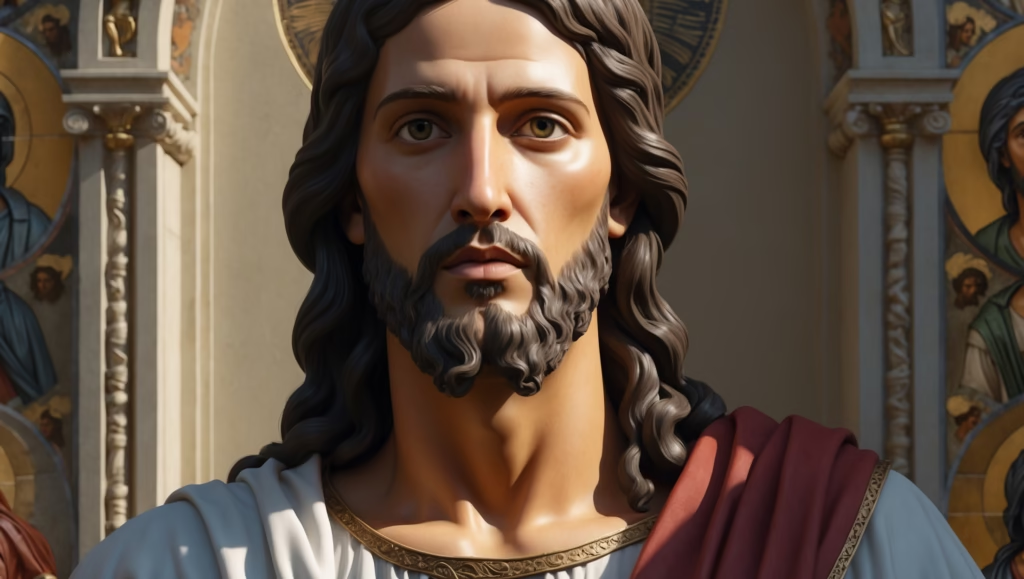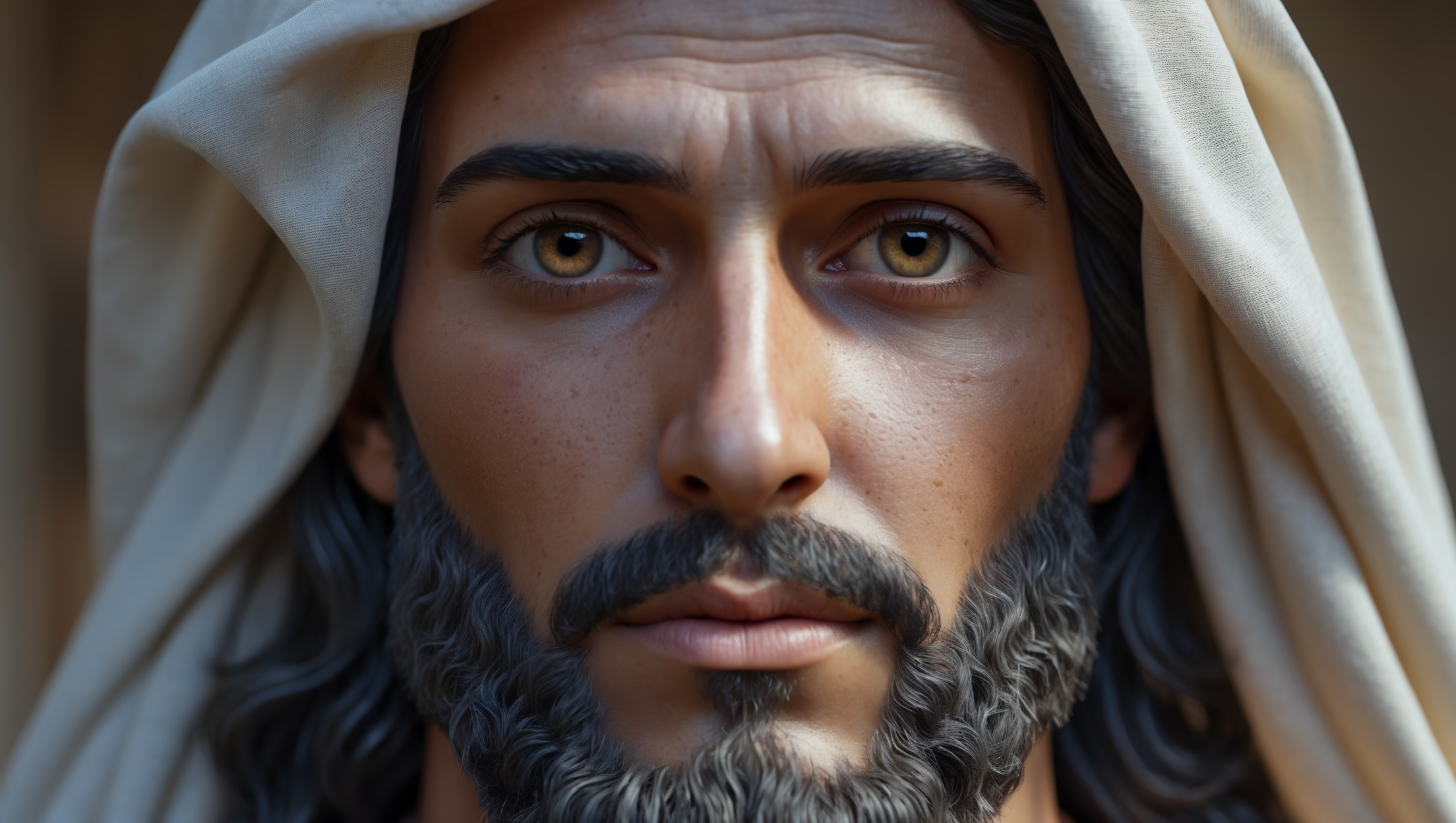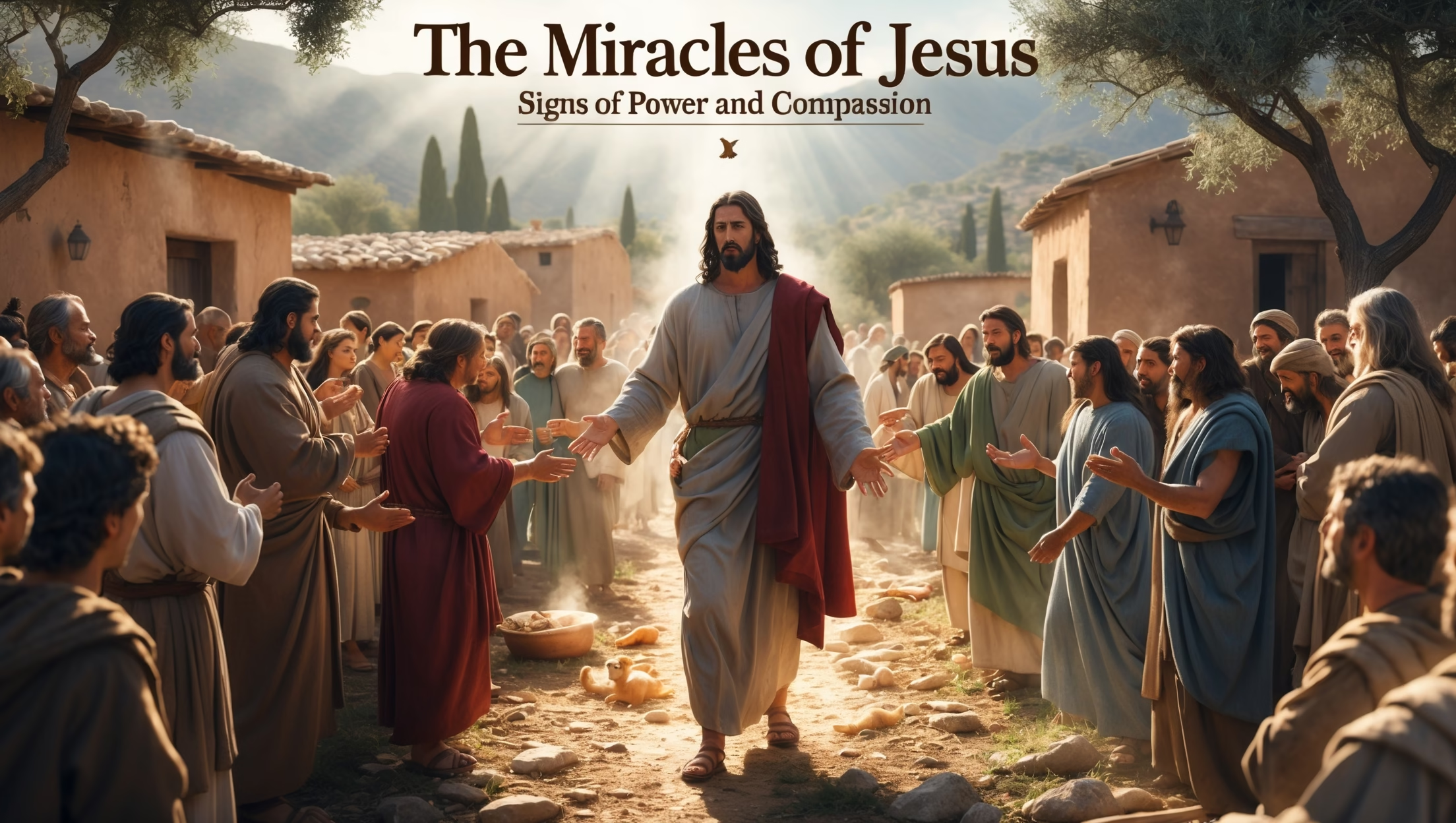The Quest for the Authentic Gaze
When we look at images of Jesus across cultures, we are often struck by strikingly different depictions—ranging from Byzantine Pantocrators with dark, intense eyes to Renaissance paintings featuring striking blue-eyed figures. But how accurate are these representations? Exploring the historical, cultural, and theological factors behind Christ’s imagery helps us understand both the man and the biases of those portraying Him.

Historical and Biological Evidence
Middle Eastern Phenotypes
Jesus was a first-century Jewish man from Galilee. Forensic anthropologists studying skeletal remains from the region suggest typical traits included olive to light-brown skin, dark hair, and brown eyes. This aligns with the population genetics of the Levant in the 1st century CE.
Artistic Interpretations
Over centuries, artists projected their own cultural ideals onto Jesus. Byzantine Pantocrators depicted Him with large, dark eyes and solemn expressions, emphasizing His divinity. By contrast, Renaissance painters in Europe, influenced by local aesthetics, often gave Him blue eyes and fair skin—traits unfamiliar in 1st-century Palestine.
The Acheiropoieta Tradition
Early Christian theology emphasized icons “not made by hands” (acheiropoieta), claiming certain images were divinely revealed. These icons shaped devotional practices, often prioritizing symbolic meaning over ethnographic accuracy.
Theological and Cultural Implications
Debates on the True Image of Christ
Throughout history, questions arose about Christ’s “authentic” appearance. Some theologians argued for ethnographic fidelity, while others prioritized the spiritual message conveyed by His image. Eye color became symbolic: light eyes connoted innocence or divinity in European art, while darker eyes in Eastern icons suggested wisdom and solemnity.
Modern Movements for Representation
Recent decades have seen renewed attention to historically plausible depictions of Jesus. Artists and scholars promote images reflecting His Middle Eastern heritage, including brown eyes and olive-toned skin. Movements such as Black Jesus iconography challenge Eurocentric norms and emphasize the universality of Christ.
Forensic Reconstructions
Using skeletal remains, historical records, and anthropological data, researchers have attempted facial reconstructions of Jesus. These projects typically depict a man with brown eyes, dark hair, and a Mediterranean complexion, closer to the probable historical reality than traditional Western depictions.
Implications for Worship and Faith
The way Jesus is depicted influences devotion, cultural identity, and theological reflection. When congregations only encounter Eurocentric images, they may internalize implicit biases about divinity and human value. More historically accurate depictions foster inclusivity, challenge assumptions, and deepen engagement with Christ’s message.
Key Insight: Eyes as Windows to Cultural Perception
Jesus’ eye color is more than a biological curiosity—it reflects the intersection of art, theology, and cultural bias. By examining these images critically, believers can better appreciate the universality of His message and the diverse ways human communities have sought to visualize the divine. Ultimately, rediscovering the authentic gaze of Jesus invites a deeper, more honest encounter with history, faith, and identity.









